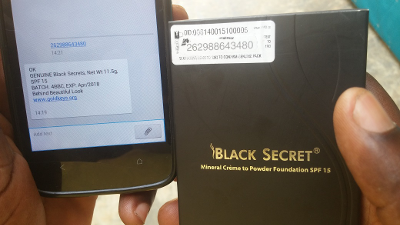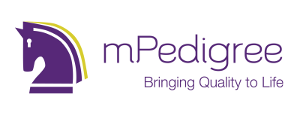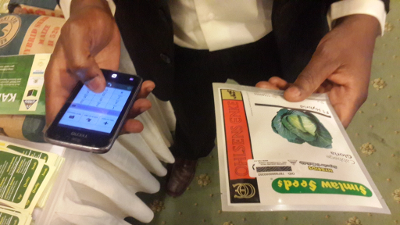This post is one of a series in the #Innovate4Health policy research initiative.
 Counterfeit medicines sold under a product name without proper authorization are a serious threat to global public health. Classified by the World Health Organization (WHO) as substandard, spurious, falsely labelled, falsified and counterfeit (SSFFC) medical products, counterfeit drugs are regularly designed to appear identical to genuine products. However, they fail to effectively treat the disease or condition for which they were intended, and in some instances, they can cause adverse reactions or death.
Counterfeit medicines sold under a product name without proper authorization are a serious threat to global public health. Classified by the World Health Organization (WHO) as substandard, spurious, falsely labelled, falsified and counterfeit (SSFFC) medical products, counterfeit drugs are regularly designed to appear identical to genuine products. However, they fail to effectively treat the disease or condition for which they were intended, and in some instances, they can cause adverse reactions or death.
A recent BBC investigation revealed a multi-billion-dollar global trade in counterfeit drugs resulting in 120,000 deaths a year in Africa alone. And though counterfeit drugs affect economies, health care systems, and patients worldwide, developing nations are most at risk, with an estimated counterfeit rate of 10%-30% of medicines sold. The prevalence of unauthorized drugs in countries with less advanced health care systems has created a dangerous pharmaceutical market with few resources to help consumers distinguish between a drug that could potentially save their life and something that might kill them.
 In 2007, Ghanaian tech entrepreneur Bright Simons set out to address this troubling threat to public welfare by creating a way to quickly confirm the legitimacy of a pharmaceutical. Realizing that low literacy and technical capacity were limiting the efficacy of existing consumer-targeted controls such as holograms and bar codes, Simons wanted to create a user-friendly system that would help consumers instantly check the authenticity of a drug using their mobile device. Simons envisioned a verification mechanism that would not only enable consumers to protect themselves against dangerous counterfeits, but also help pharmaceutical manufacturers defend their brands and shield shopkeepers from the liability of selling fake drugs.
In 2007, Ghanaian tech entrepreneur Bright Simons set out to address this troubling threat to public welfare by creating a way to quickly confirm the legitimacy of a pharmaceutical. Realizing that low literacy and technical capacity were limiting the efficacy of existing consumer-targeted controls such as holograms and bar codes, Simons wanted to create a user-friendly system that would help consumers instantly check the authenticity of a drug using their mobile device. Simons envisioned a verification mechanism that would not only enable consumers to protect themselves against dangerous counterfeits, but also help pharmaceutical manufacturers defend their brands and shield shopkeepers from the liability of selling fake drugs.
Simons partnered with drug companies and other stakeholders to upload pedigree information from individual packs of medicine into a central registry using standard mass serialization methods similar to those employed in the radio-frequency identification (RFID) barcode system familiar in the United States and other developed countries. Calling his company mPedigree, Simons built a mobile verification service that enables consumers to text a product code that is then checked against the registry of authentic medicines, instantly verifying that the medicine they’ve acquired is legitimate and safe.
Since forming mPedigree in 2009, Simons has brought his system to Nigeria, Kenya, and India, with pilot programs in Uganda, Tanzania, South Africa, and Bangladesh. In 2015, mPedigree codes appeared on over 500 million drug packets from clients such as AstraZeneca, Roche, and Sanofi, and its verification network has been essential in combating a serious counterfeit antimalarial drug scheme that was putting thousands of Africans at risk.
Though mPedigree is best known for its work with pharmaceutical certification, Simons has expanded its verification system to address counterfeits in other industries through his development of the cutting-edge supply chain transformation technologies, EarlySensor and Goldkeys.
mPedigree’s EarlySensor technology offers a proactive solution to companies plagued by unauthorized imitations by identifying patterns in counterfeiting activity and alerting partner government agencies of suspicious trends. The project “scans large pools of authentication, traceability, supply chain & logistical referencing, and user-generated data to mine insights and plot evolving patterns” to empower both manufacturers and consumers to predict counterfeiting activity before it occurs. EarlySensor technology is currently used by three major pharmaceutical and cosmetic companies in Nigeria, and empirical analysis has shown a 65% reduction in the circulation of counterfeit versions of their brands.
With Goldkeys, mPedigree has developed a set of web tools to provide brand owners with “complete, real-time, control of key events in their supply chain.” The technology enables companies to manage distribution networks and retail point integration, as well as track end-consumer activity through web applications and cloud computing. Goldkeys also allows consumers to “call in” their product by voice call or text on a mobile device to ensure authenticity and receive consumer support.
 Through the combination of EarlySensor and Goldkeys, mPedigree’s innovative technology is facilitating the protection of both brand owners and consumers and ensuring that data collection and authentication mechanisms are leading to the safer distribution of medicines, cosmetics, seeds, and other essential products.
Through the combination of EarlySensor and Goldkeys, mPedigree’s innovative technology is facilitating the protection of both brand owners and consumers and ensuring that data collection and authentication mechanisms are leading to the safer distribution of medicines, cosmetics, seeds, and other essential products.
As a company dedicated to helping others protect their product reputation and brand, mPedigree understands the importance of effective IP rights and has utilized patent, copyright, and trademark protection in the development and commercialization of its own brands and services. In the early days of the company, as it formed partnerships with tech and pharmaceutical industry giants, mPedigree was careful to retain the rights to its creations, with Simons stating in a recent interview that, “[w]e had one interest to protect: our intellectual property.”
 By providing a dynamic link between consumers and manufacturers, mPedigree is making communications at the point of purchase routine and creating value for consumers, manufacturers, regulatory agencies, and sellers. A project ten years in the making, mPedigree is built on the recognition that protecting intellectual property—both mPedigree’s and its clients—can save lives.
By providing a dynamic link between consumers and manufacturers, mPedigree is making communications at the point of purchase routine and creating value for consumers, manufacturers, regulatory agencies, and sellers. A project ten years in the making, mPedigree is built on the recognition that protecting intellectual property—both mPedigree’s and its clients—can save lives.
Bright Simons’ vision and dedication to fighting the counterfeit drug epidemic in Africa and beyond through pharmaceutical verification is a testament to the vital role innovation and technology play in confronting global challenges, and as its motto states, mPedigree is indeed “bringing quality to life.”
*Images courtesy of mPedigree Global Image Archives
#Innovate4Health is a joint research project by the Center for the Protection of Intellectual Property (CPIP) and the Information Technology & Innovation Foundation (ITIF). This project highlights how intellectual property-driven innovation can address global health challenges. If you have questions, comments, or a suggestion for a story we should highlight, we’d love to hear from you. Please contact Devlin Hartline at [email protected].